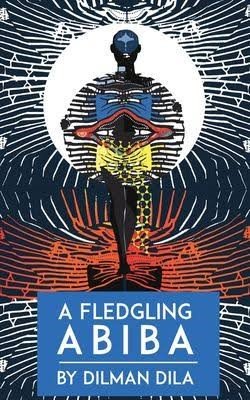FLEDGLING ABIBA by Dilman Dila
A Fledgling Abiba’s protagonist is a young girl named Kuri, who leaves an abusive auntie’s home and discovers she is a “fire shitter”, with the ability to steal rememberances. In the search for her father, she has to overcome obstacles by mustering the supernatural abilities within her in order to become an Abiba.
Through a fictional world of magic, folklore and the supernatural, the author strategically uses the heroine Kuri to take readers on an adventure through Uganda’s Bantu’s and Luo’s mythology.
The notable myths are; The Musezi myth, the Chwezi folklore, the Wor-yamo spirituality, and Ondetta myths. It is important to note that the Ugandan society is very heterogeneous with more than fifty ethnic groups of either Luo or Bantu origin. These groups however remain unacquainted with one another’s cultures especially the spirituality aspect.
Since this reviewer is only acquainted with some Bantu languages, whose myths he is aware, he will avoid speculating on Luo spirituality to avoid misinformation.
The author manages to apply some of these myths well in the way that they aid Kuri in her coming of age journey into an Abiba. Notably the Musezi myth which is very much alive today within many Bantu groups. The author uses Ugandan society’s fears about the supernatural and the Musezi myth to challenge Kuri to muster her own powers and protect herself when she encounters the Musezi character.
The Chwezi have always been thought of as supernatural beings in the Ugandan cultural experience especially in the western regions of Uganda. Kuri, initially only knowing about her father being a Muchwezi, sets the mystery and suspense about him, making the reader want to find out who a Chwezi is and how that truth helps Kuri in her growth as a character. Together with the Wor-yamo entity, the author’s strength in setting up our character is clear.
Even though Fledgling Abiba, a novella, is a work of fantasy and therefore gives the author a lot of freedom, the book suffers from a lack of depth and clarity in the mythology it applies, hence leading to weak characterization and weak world building.
The Chwezi for instance; the author reveals to us that Chwezi are demi gods but doesn’t show us or tell us more about them. This also goes for the Jokwok. We are told about the mountains of the moon but we are not told or shown why they are referred to as the mountains of the moon. The fictional city named Muwaawa ruled by an Omukama, a title used by Banyoro and Batoro people of western Uganda to call their Kings, is fascinating but the author again comes up short in its building. The reader struggles to see this grand city and its inner workings…a key trait of the fantasy genre.
The author, having alerted us to the use/grammar of the non-English nouns he used at the start of the book, he ignored the fact that Uganda is very heterogeneous. Readers of Luo origin will not understand Bantu nouns and Bantu readers will not understand Luo nouns. For example, not explaining more about what kind of food Kwon Kal is or what Kuri’s Kobi is, does not help Bantu readers.
Some terms like Mukaikuru which are translated as old woman or grandmother are misconstrued to mean co-wife which could irk readers from the ethnic group the term is derived. The same goes for other words like Mchawi. A more detailed explanation of Bantu words like Kawuka, a Luganda meaning HIV/AIDS, would’ve given stronger depth to the society Dila is constructing for us. A Luo with no familiarity with Bantu languages, would not know that kawuka is HIVAIDs virus, much less a sexually transmitted disease. The same could be said of Abarusuura who are royal guards of the Banyoro people’s Omukama. More detailed descriptions of the guards and explanations could’ve aided stronger building of the world. When telling us about the Island of sin, we are not told more about the Island.
We could go on and on about the terms but in short, the terms fail to work and contribute to poor world building of an important story idea.
This however should not take away from the author’s ambitious attempt. Following in the tradition of Palm wine drinkard by Amos Titola, like Clyde W Ford author of Hero with an African face would attest, he has continued the African supernatural tradition where the hero or heroine goes on an adventure where they encounter supernatural dangers which help them to find self-actualization. In Kuri’s case, she finds out why her mother and father have not been there with her since her childhood.
The lesson from the story is that there shouldn’t be fear of the dangers posed by the supernatural because you are already supernatural. You just have to find these powers within yourself. This may sound like a belief in these myths but like Patrick Some writes in his book about African culture, Of water and the spirit: Ritual, Magic, and Initiation in the Life of an African Shaman: “For us, as for many indigenous cultures, the supernatural is part of our daily lives.”
A Fledgling Abiba deserves a rating of 3.8 out of 5 stars as the story telling is fluid and is a fine introduction into Uganda’s diverse and unexplored historical, mythological and supernatural cultural landscape.

